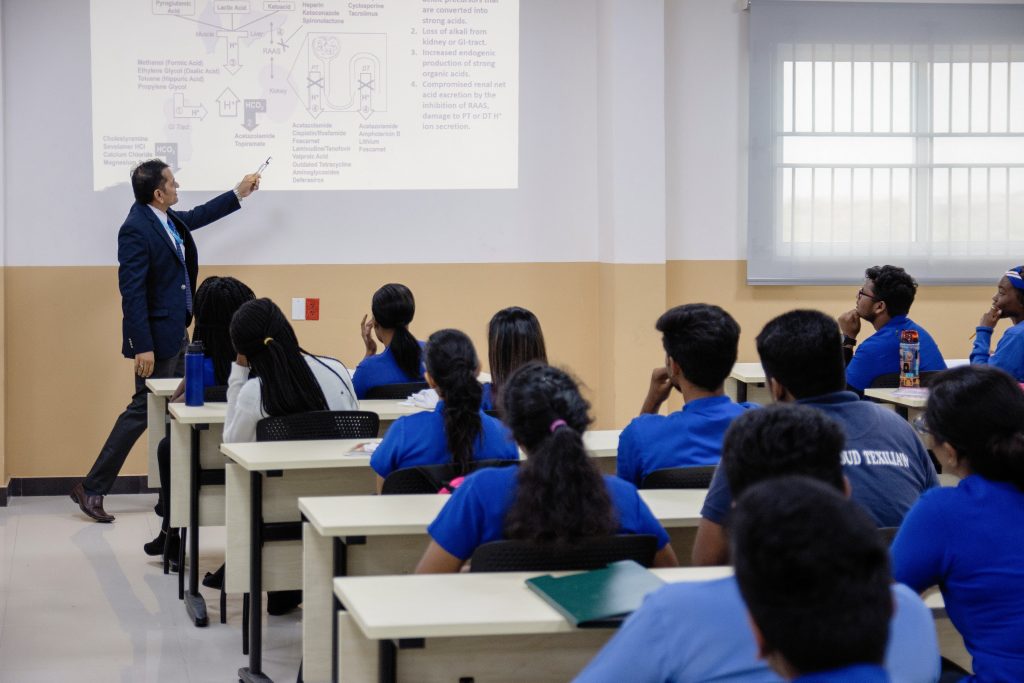Getting into a medical school is getting more challenging with every passing year. If you are an aspirant from the United States, then you need a GPA of at least 3.5 and a good MCAT score; if you are from India then you will need a NEET score of over 650. In short, depending on the country you belong to, the eligibility and competition will vary. Caribbean medical schools as such are gradually emerging as an alternative to studying medicine by students globally.
At present, there are 60 recognized medical schools in the Caribbean that offer quality education at par with global universities. As a student researching on his/her options, it is therefore important to evaluate before deciding on a particular college. Here’s a list of factors to consider before selecting a medical college in the Caribbean!
How to select a Caribbean Medical College
There are several advantages of pursuing MD (equivalent to MBBS) in the Caribbean. Holistic admission processes, affordable tuition fees, and an internally accepted curriculum attract many students from the US, India and other countries to study Medicine in the Caribbean. Let’s have a look at the top factors to consider before selecting a Caribbean medical college for the M.D. program:
Check on the accreditations the school has
When studying in a Caribbean Medical School, accreditations matter. It is important that the college is recognized by the Educational Commission for Foreign Medical Graduates (ECFMG), and listed in the World Directory of Medical Schools (WDMS). The college should also be in the process of or be accredited by the Caribbean Accreditation Authority for Education in Medicine and other Health Professions (CAAM-HP).
Additionally, students should also check if the college is recognized in their individual countries. For instance, an India student needs to check if the college is recognized by the Medical Council of India (MCI).
Enquire about how does the school determine student eligibility
The criteria for student selection differ between colleges. However, some basic criteria to consider include:
- For Indian students: Senior secondary with PCB, Maths, and English + NEET scores
- For US students: GPA + MCAT scores
- For Caribbean students: CXE/CAPE scores
It is comparatively easier to get into a Caribbean med school that one in the USA, Canada or India – but by following a basic eligibility benchmark, colleges ensure that they maintain the quality of their students. So be mindful of that as well.
Take advise from alumni
It is obvious that before deciding on a medical school you will research about it online. However, it is also advisable to consult with alumni and current students so as to have a clear and thorough idea of the pros and cons of studying medicine in Caribbean colleges. These alumni and students are the ones who have the first-hand experience and will be able to provide an honest picture to you.
Take note of the fee structure and availability of scholarships
Most medical colleges in the United States have exorbitant tuition fees (roughly around $230,000) often leading to students being debt-ridden upon course completion. It usually costs only half of that to study medicine in the Caribbean.
Some of the top medical schools in the Caribbean also offer scholarships to meritorious students making medical education more affordable. So, when shortlisting a med school do enquire about scholarships and fee structure.
Be informed about student performance in USMLE
The United States Medical Licensing Examination (USMLE) is a three-step examination for medical practice licensure in the United States, the first two to be taken while still in med school. It is important to enquire how students perform in this exam to gauge how well the college prepares students for it. Students at Texila American University, for instance, have a 96% pass rate at USMLE!
To keep it simple – the medical college will only give the Doctor of Medicine degree; the ability to practice in the United States will depend on the USMLE results.

Check if support is provided for PG placements/ Residency?
Do check the college’s match rate for medical residency program as without it one cannot be a practicing physician in the United States. However, for Indian students who aim to return to their home country and practice this may not be a guiding factor for selection.
Enquire about provisions for accommodation
When studying medicine in a foreign country one must look into peripheral factors including provision for accommodation and food. Though the Caribbean is lesser expensive when compared to the United States and Europe, yet at students, one must always try to keep expenses in control. Check if your college of preference provides accommodation/hostel for students.

How does the college help in the student’s overall development?
Overall development – that’s what all global universities offer their students. Medical education is rigorous and students often feel the pressure of the academic load. Do speak with student counsellors, faculty and even alumni to understand the scope for personal development.
The best medical colleges will ensure that students are able to enjoy the best of academics, extra-curriculum, and exposure. Students as such will be encouraged to participate in sports, international medical conferences, community activities, paper presentations, etc. so as to contribute to their overall development.
So, now that you have a better understanding of how to select a medical college in the Caribbean it is time to get down to it! Also, do remember to check on the application process for the colleges and its timeline. Unlike colleges in India or the USA, medical schools in the Caribbean usually have two intakes per year. Make sure you don’t miss out on any important dates.




3 Comments. Leave new
[…] a popular choice for many. Today, we will let you in on why that is the case and why you should be choosing a Caribbean medical school […]
This was more than perfect post for students interested to take admission in Caribbean Medical Schools. Being internal medicine student in Windsor School of Medicine, i can witness that there are many myths about Caribbean medical schools but most of them have no depth. I realized it after coming here.
Accreditation is very much important for any student while taking admission abroad.